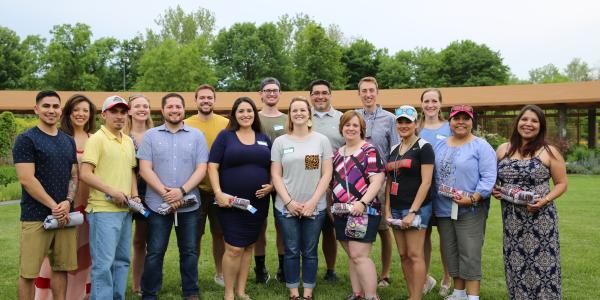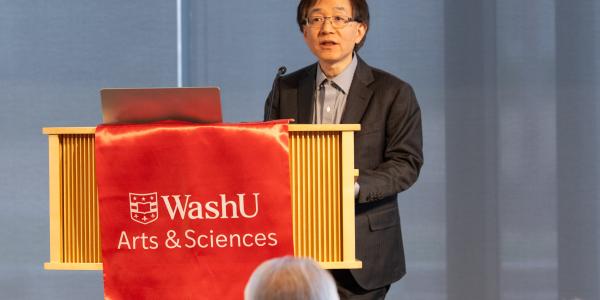Sara King was six years old when she first started working in the fields. Born to migrant workers in Mexico that resettled in west Texas every summer – the pattern played out until she was 18.
“It wasn’t easy,” recalls the now American citizen. “I would miss school. We would be out from May to September. That’s five months. I felt like I was always behind.”
But despite her families’ migratory lifestyle, her parents always emphasized education.
“My dad would always tell me, ‘Make sure you finish school because I don’t want you working in the fields.’”

With this impermanent background, her recent accomplishment of graduating on May 18 from University College at Washington University with a Master of Science in Biology for Teachers is extra special. Currently, she teaches science at PSJA Thomas Jefferson T-STEM Early College High School in Pharr, Texas. But her path to the classroom was hardly a certain one.
As a high school student, King earned her cosmetology license and made good money as a manager for a hair salon. But she felt unsettled and decided to return to school at age 26. She completed her bachelor’s degree by 29.
King grows emotional as she describes piecemealing her education.
“I put my education together in stages, and it has been life changing. I am proud to be an inspiration to other moms.”
She’s also an inspiration to her siblings. She’s one of 14 children and the only one with a bachelor’s degree.
“I wanted to show them what can be done in spite of being older and a parent.”
King is a member of the first cohort to graduate from a recent partnership between Washington University and the Texas Graduate Center, a nonprofit dedicated to the betterment of public school education in Texas’ Rio Grande Valley. The goal is for the teachers with their WashU master’s degrees to be able to provide AP and dual credit courses to students at the high school level, therefore creating a robust college pipeline.
The two-year program is designed to fit the schedules of working teachers. It consists of two summer institutes, three weeks each, in residence at WashU. The remaining coursework is completed online. The program is funded partly by the school districts and the TGC.
The Texas group started in the summer of 2016 and consisted of 10 teachers from five school districts across the Valley.
While the WashU program is designed for working teachers, King admits she initially faltered.
“I hadn’t been in school for many years and getting back into the routine of studying, staying up late and collaborating with other people was really, really challenging.”
But she never gave up, and ultimately ended up loving the program and the instructors.
“You don’t waste opportunities that are given to you,” she said.

For classmate Arnulfo Cruz, earning his master’s degree was one of his proudest achievements.
“This shows my students that with hard work and perseverance you can accomplish anything,” the science teacher at Weslaco East High School in Weslaco, Texas, said.
Just like King, he agrees the experience wasn’t without it challenges. The primary one according to him – not enough hours in the day. He said surviving on limited sleep was an obstacle. In addition, he said the program requires checking your ego at the door.
"You cannot go into this program with pride. It takes a village to get an advanced degree,” he says. “It involves team work, collaboration and asking for help.”





